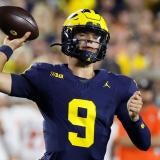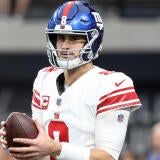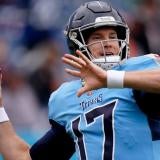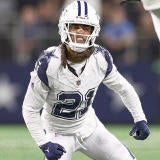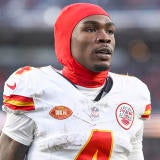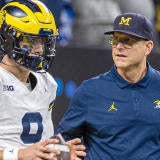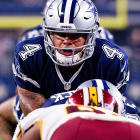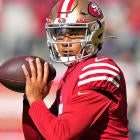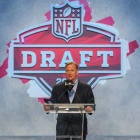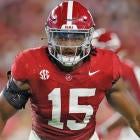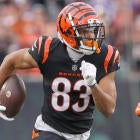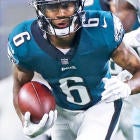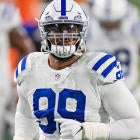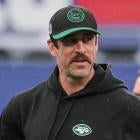One of the things that often gets talked about as being incredibly important for NFL teams is balance. The best way to ensure success is to be really, really good on both offense and defense. A team can experience success if it's elite on one side of the ball and merely average or slightly below on the other, but it's far more difficult to win consistently if your team is excellent on one end and terrible on the other.
Take the 2014-2016 New Orleans Saints, for example. Those Drew Brees-led squads have been among the elite offenses in the NFL. The Saints finished ninth in scoring and seventh in Football Outsiders' offensive DVOA (Defense-adjusted Value Over Average, which adjusts team performance for down, distance, and opponent) in 2014, eighth in scoring and seventh in DVOA in 2015, and second in scoring and sixth in DVOA in 2016.
However, as good as they were offensively, those teams were even worse on defense. The 2014 Saints finished 28th in points allowed and 31st in defensive DVOA. The 2015 team finished last in both categories and the 2016 squad finished 31st in both categories. As a result, the Saints have ended the season with a 7-9 record for three years running.
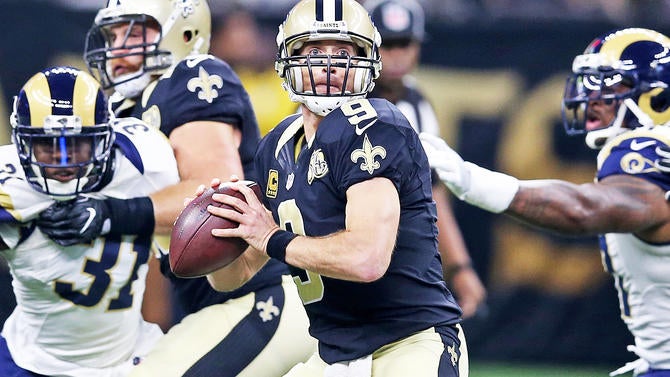
Similarly unbalanced teams don't exactly have a great track record of success. There are a few outliers, like the 2016 Falcons, but for the most part, all-offense, no-defense teams are about as average as you'd think they would be.
All offense, no defense
Since the NFL expanded to 32 teams and slotted them into the current eight-division format back in 2002, there have been 17 occasions where a team finished in the top-10 in both scoring and offensive DVOA, as well as the bottom-10 in both points allowed and defensive DVOA. The combined record of those 17 teams was 139-132-1, and that's despite the fact that four of the 17 (2004 Packers, 2006 Colts, 2010 Colts, 2016 Falcons) managed to win double-digit games. The other 13 squads managed a combined record of just 96-111-1, dropping the overall winning percentage for the group from 0.513, or an 8.2 win average, to 0.464, or a 7.4 win average.
All four of those aforementioned teams that managed double-digit victories finished inside the top-six in scoring and offensive DVOA, and outside the bottom-three in points allowed and defensive DVOA. In other words, they had to have truly elite offenses and bad but not quite abominable defenses in order to experience success. Last year's Falcons are a great example of this: they finished the year first in both scoring and DVOA while checking in 27th in points allowed and 26th in defensive DVOA. Their offense was just so good that it overpowered how poor the defense was for much of the season, and they ended the year with an 11-5 record and the No. 2 seed in the NFC.
What does this mean for our purposes? Well, teams like the Saints (again), Cowboys, and Lions, all of whom can be expected to have very good offenses in 2017, will need to step up their games defensively if they went to make trips to the postseason. You don't need me to explain what could happen to the Saints if their defense doesn't improve. We've seen exactly what happens over the last few years, so let's instead use the Cowboys as an example.
The Cowboys' No. 5 scoring offense finished No. 3 in DVOA last year, and that group was supported by a defense that finished fifth in scoring and 18th in DVOA. They lost a ton of bodies on defense in free agency this offseason, and while none of those players was necessarily a star level contributor, the cumulative effect of losing so many players and replacing them with mostly rookies and low-cost free agents could cause their defensive efficiency to dip. If they fall into the bottom-10, it may not matter how good Dak Prescott, Dez Bryant, and Ezekiel Elliott (when he returns) are; it'll be difficult for the Cowboys to sustain last year's success.
All defense, no offense
Lest you think these woes apply solely to offense-only teams, think again. There haven't been quite as many all-defense, no-offense teams since the league's expansion, but that smaller group of squads has actually experienced less success than their most offensive-minded counterparts.
There have been nine teams since 2002 that finished the season in top-10 in points allowed and defensive DVOA, as well as the bottom-10 in points scored and offensive DVOA. Those nine teams amassed a collective record of 65-79; that 0.451 winning percentage is equivalent to that of a 7.2-win team. Two of those nine squads (2005 Bears, 2014 Cardinals) won double-digit games, leaving the rest of the group with a 0.384 winning percentage that's equivalent to that of a 6.1-win squad. Last year's Vikings, for example, managed to go 8-8 with the sixth-best scoring defense that finished eighth in DVOA. The unit was dragged down by an offense that ended the year 23rd in points scored and 26th in DVOA.
This type of track record could be bad news for teams like the Broncos, Texans, Jaguars, and Rams. Denver finished last season fourth in scoring defense and first in DVOA, but only managed a 9-7 record thanks to an offense that finished just barely outside our bottom-10 in both categories criteria by ending the year 22nd in points scored rather than 23rd. (They scored a grand total of six more points than the 23rd-ranked Vikings.) The Trevor Siemian-led offense is not exactly inspiring much confidence in the idea of them taking a big leap forward offensively in 2017; if their defense slips even a little bit, a team that fancies itself a contender could instead wind up with a losing record and a pick in the top half of the draft.
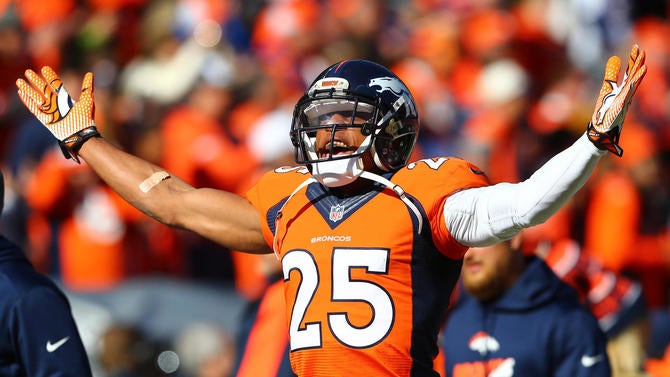
The same is true of the Texans, who finished 9-7 but won the decrepit AFC South anyway. Their 11th-ranked scoring defense that finished No. 9 in DVOA supported a dreadful offense that ranked 29th in scoring and 30th in DVOA. Unless they find more offensive success under Tom Savage or Deshaun Watson, they could be in danger of falling behind a more balanced team like the Titans. The same is true of the Jaguars, who won't take their long-awaited step forward despite all their continued important of defensive talent -- not unless Blake Bortles or Chad Henne gets the offense in line. Aaron Donald might wreak more havoc than any defensive player in the league in Wade Phillips' defense, but without a major step from Jared Goff and the offense, the Rams aren't going anywhere.







